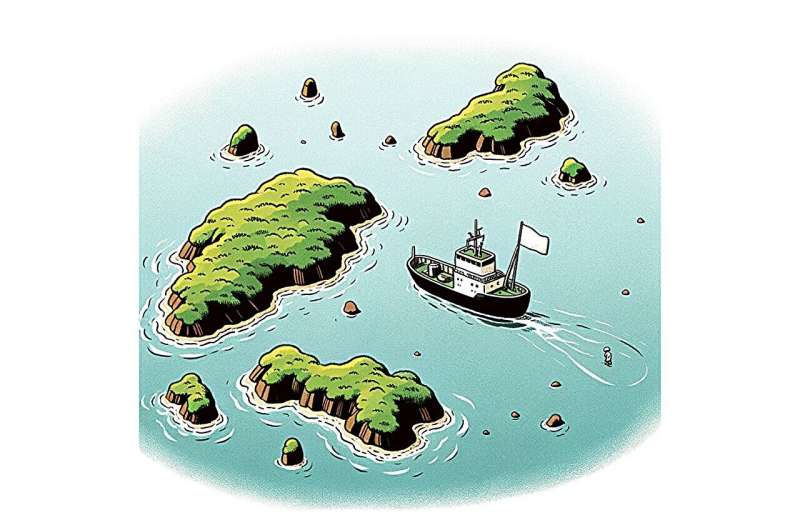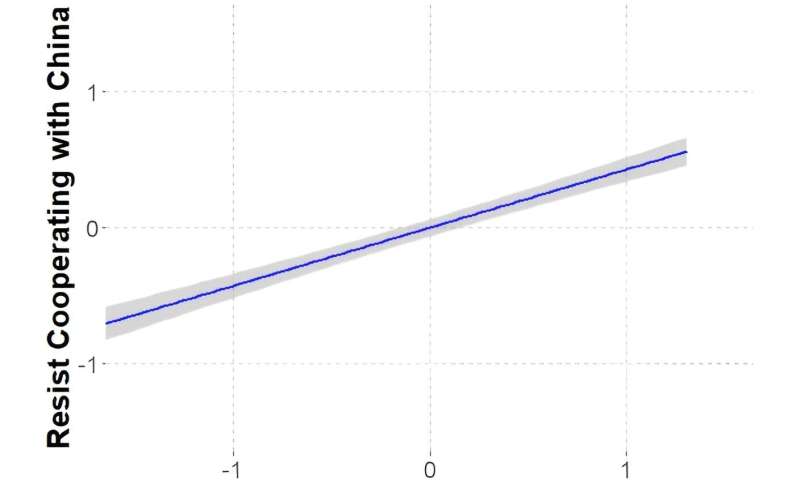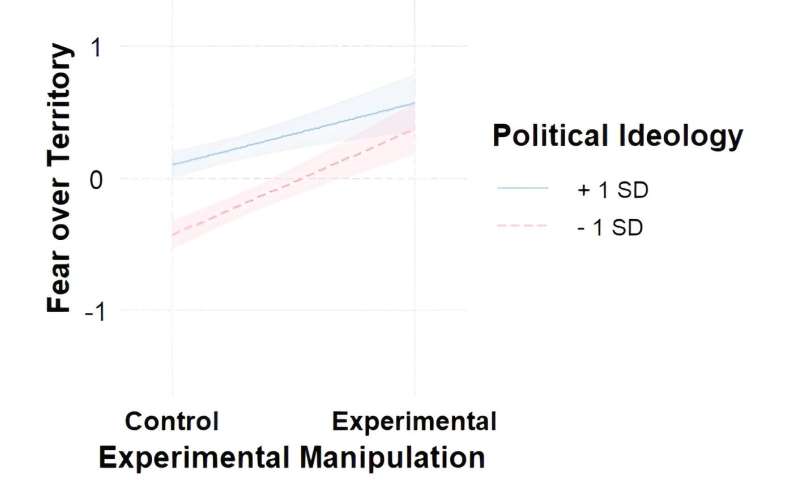This article has been reviewed according to Science X's editorial process and policies. Editors have highlighted the following attributes while ensuring the content's credibility:
fact-checked
trusted source
proofread
A threat to what is ours: How Japanese people react to perceived territorial infringements

Throughout the world, it is common for threats to national sovereignty or territorial integrity to stir up strong emotions among the public. Now, researchers from Japan have found that the strength of the reaction to such threats can break down along political lines in interesting ways.
In a study published in Peace and Conflict: Journal of Peace Psychology, researchers from Osaka University have revealed that the Japanese public is highly sensitive to what are known as "collective ownership threats" (COT, i.e., fear of losing control of what is perceived as "ours"), as might be expected given Japan's strongly collectivist and ethnically homogenous character. Interestingly though, Japanese individuals with politically liberal beliefs tend to show a higher degree of sensitivity to COT than conservatives.
Political scientists distinguish between COT and other types of potential threats to a nation, such as economic or symbolic threats. Although there may be some overlap between these types of threats, in the case of COT, the defining feature is the sense that something that is "ours" is being infringed upon by outsiders (such as a foreign nation).
"In Japan, the issue of the Senkaku Islands (known as the Diaoyu Islands in Chinese) is a matter of great public concern," says lead author of the study Tomohiro Ioku. "Reports of threats to Japan's territorial rights over the islands, such as when a Chinese Coast Guard ship recently entered nearby waters, can cause significant public anxiety."
-

Fear over Territory and Resistance to Cooperating with China. Note. The slope of a straight line indicates higher the fear is, the higher the level of resistance. Credit: 2023 Ioku and Watamura, Cultural Invariance and Ideological Variance of Collective Ownership Threat in Intergroup Relations. Peace and Conflict -

Differences in Fear over Territory by Experimental Manipulation: +1SD for Conservatism, -1SD for Liberalism. Note. The slope of the straight line indicates how much higher fears are in the experimental condition than in the control condition. Participants in the experimental condition read articles about losing Japanese territory, while those in the control condition read articles with no such statement. Credit: 2023 Ioku and Watamura, Cultural Invariance and Ideological Variance of Collective Ownership Threat in Intergroup Relations. Peace and Conflict
To investigate how the Japanese public reacts to such infringements, the researchers conducted an online survey of more than 800 Japanese adults in February 2022. As part of this survey, the respondents were shown a fictitious newspaper article depicting a threat from China to Japan's collective ownership, economy, or culture and tradition.
"Our findings suggest that the Japanese public is particularly sensitive to COT," explains Eiichiro Watamura, senior author. "However, what is fascinating is that this sensitivity is even more pronounced among liberals than conservatives."
This finding runs counter to conventional wisdom, which is that conservatives tend to react more strongly to issues involving territorial integrity and national sovereignty. Another interesting finding is that the fictitious examples of COT from China in the study had the result of reducing the participants' willingness to cooperate with Chinese policies such as the Belt and Road Initiative.
This study underscores the psychological importance of collective ownership threats, potentially deterring countries from engaging in activities that infringe on the territorial integrity of others.
More information: Tomohiro Ioku et al, Cultural invariance and ideological variance of collective ownership threat in intergroup relations., Peace and Conflict: Journal of Peace Psychology (2024). DOI: 10.1037/pac0000707
Provided by Osaka University




















